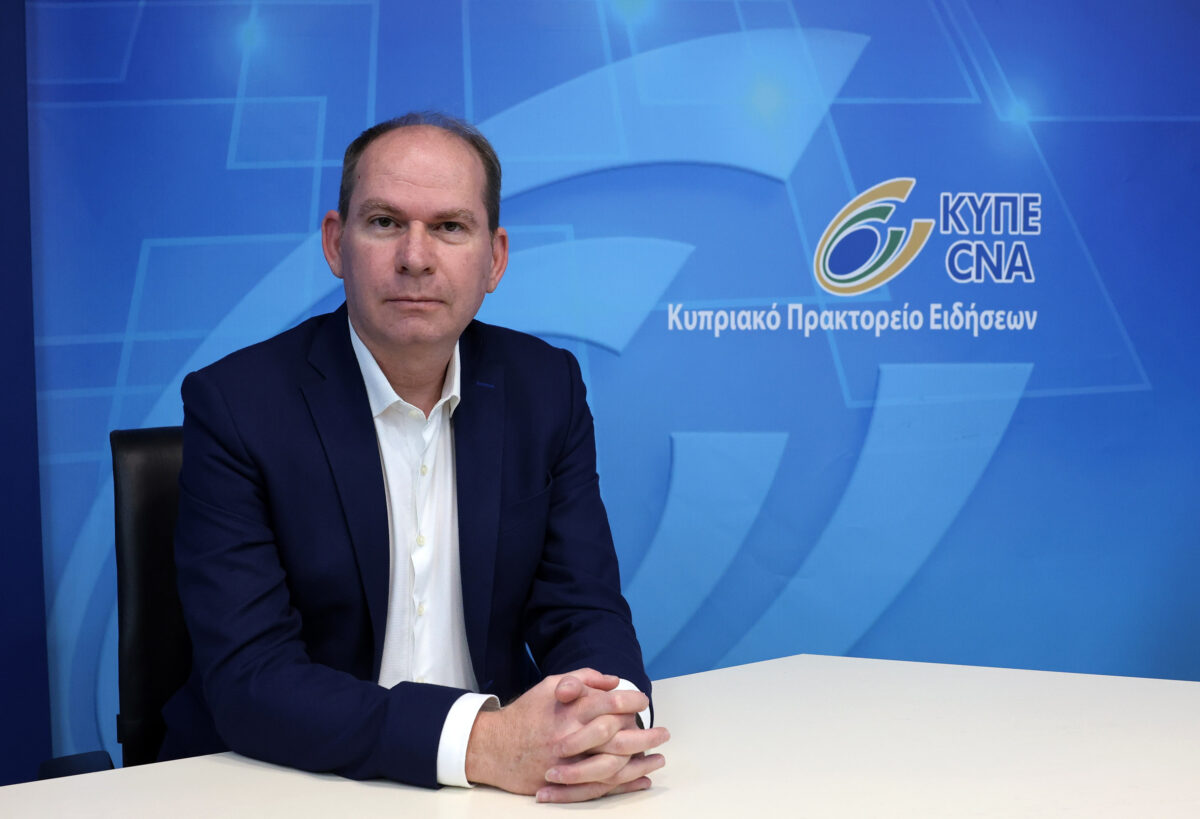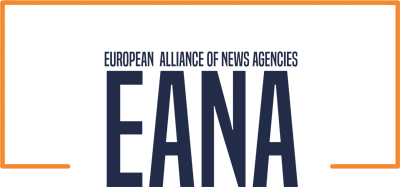
“We Prefer Accuracy to Speed”: Dinos Phinicarides on CNA's Responsibility during Elections
In an EANA Top Voices interview, Dinos Phinicarides, Director of the Cyprus News Agency, reflects on the evolving role of news agencies in an era shaped by artificial intelligence, misinformation, and geopolitical challenges. Emphasising the enduring value of credibility, accuracy, and balanced reporting, Phinicarides outlines CNA’s cautious but strategic integration of AI, its commitment to ethical journalism during elections and conflicts, and the importance of adapting to new regulatory frameworks while staying true to the core principles of the profession. Read the full interview below.
Q: News agencies in Europe have navigated rapid changes over the past decade, from digital disruption to shifting audience habits. How would you describe the current role of news agencies in today’s media ecosystem, and where do you see this role heading in the next few years? What major shifts or evolutions do you anticipate for news agencies by the end of this decade?
A: The role of news agencies remains very important because of their ability to deliver reliable and verified news to a media ecosystem that is under pressure from both news pages of dubious quality and social media. News agencies will have to adapt to the conditions of the time by writing smaller texts and offering credibility to journalistic content. In the years to come, the biggest challenge concerns the integration of artificial intelligence into the work of agencies and, above all, the ability to detect false or fabricated news.
Q: AI and automation are increasingly being integrated into newsroom workflows, from generating news updates to aiding in research, translation, and content distribution. How is your agency strategically incorporating artificial intelligence into its editorial and operational processes? What benefits do you expect AI to bring to news production and delivery, and how are you addressing the potential risks or ethical challenges (for instance, maintaining accuracy, avoiding bias, and protecting your agency’s content) that come with AI adoption?
A: At the Cyprus News Agency, we are strategically and deliberately integrating artificial intelligence to augment our journalistic mission, not replace it. We have already begun implementing AI tools to automate routine tasks such as transcription, initial translation of news flashes and data monitoring. This crucial operational shift liberates our journalists from time-consuming processes, allowing them to redirect their expertise toward what truly matters: in-depth investigative reporting, source cultivation, and rigorous verification. The primary benefit is a significant enhancement in both the speed and depth of our news production, enabling faster public awareness and a greater focus on high-value journalism.
The expected advantages extend to quicker turnaround on developing stories and an enhanced capacity for data-driven reporting. However, we navigate this adoption with a core ethical principle: all AI output is treated as a raw input and is rigorously controlled, checked, and edited by our human editors. To mitigate risks like inaccuracy or embedded bias, we maintain a human-in-the-loop model where final editorial judgment is always exercised by our staff. Ultimately, our goal is to harness the machine's efficiency to strengthen the journalist's critical role, ensuring technology unequivocally serves the cause of accuracy and trust.
Q: Europe’s news agencies have been tested by major geopolitical crises, notably the ongoing war in Ukraine since 2022. What has covering a conflict of this scale taught your agency about its responsibilities and challenges? How do you ensure accurate, impartial reporting in such high-stakes situations, and what measures are you taking to protect journalists on the ground and to combat misinformation or propaganda during conflict coverage?
A: In wars and conflicts, in addition to human losses, the truth is always a great victim. We, as a small agency, get the news from correspondents and larger agencies and focus mainly on broadcasting statements and confirmed facts. We avoid fringe websites and social media accounts that are not certified.
Q: Recent political events like the 2024 European Parliament elections (and also elections at national level throughout Europe) have highlighted the role of news agencies in supporting democracy. What responsibilities, if any, in your view, do news agencies have in countering misinformation, political polarization, or voter apathy during election cycles, and how do you balance speed with accuracy when reporting on election outcomes and controversies?
A: For each electoral process conducted in Cyprus, CNA will operate with a special code that concerns the coverage of all parties and all candidates. Our responsibility lies in covering everyone in an equal way. We prefer accuracy to speed because we are not competing with the media in Cyprus. They are all our subscribers, so our goal is to protect our credibility. On the night of the elections, we broadcast only the official results and comments about them.
Q: The relationship between news agencies and big tech platforms is evolving amid new regulatory frameworks in Europe. With initiatives such as the EU’s Digital Services Act, the EU AI Act and other platform regulations, how do you see the interaction between news providers and tech companies changing? Are these regulations and the push for platforms to take more responsibility (or even remunerate content creators) an opportunity for news agencies, or do they introduce new challenges? How is your agency navigating issues like content distribution on social media, algorithmic reach, and negotiating fair terms for the use of your news content online?
A: In my view, the evolving regulatory landscape in Europe, particularly with the Digital Services Act (DSA) and the AI Act, presents both significant opportunities and complex challenges for news agencies. These frameworks are fundamentally reshaping the long-standing, often unequal, relationship between content creators and the big tech platforms.
Our IT team has been equipped with the expertise to navigate these new regulations strategically, viewing them as leverage points rather than mere obstacles. We see particular opportunity in the enhanced accountability measures for platforms and the growing momentum toward fair remuneration for quality journalism.
Moreover, for a news agency like CNA, this is a significant opportunity as it provides a stronger foundation to negotiate fair licensing agreements for the use of our content, which is essential for the sustainability of professional journalism.
Q: Finally, as a leader in the news agency world, what gives you optimism about the future of news agencies in Europe? Despite all the challenges discussed so far — from financial pressure to technological disruption and geopolitical events — what inspires confidence that news agencies will continue to thrive and serve the public good in the coming years? Feel free to share any guiding vision or principle that you believe will keep news agencies relevant and essential in the evolving media landscape.
A: I always believe in the basic principles of Journalism: accuracy in the news, seriousness, balanced coverage of different perspectives, focus on the facts. If we manage to highlight these basic principles in combination with technological developments and challenges, then news agencies have a future. But the transition will not be easy.


